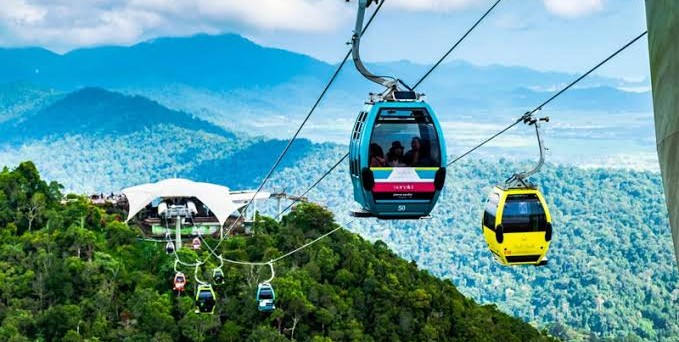(3 Minutes Read)
Rwanda is poised to lead the way in sub-Saharan Africa’s urban mobility transformation by introducing the region’s first aerial transit system. The African Development Bank (AfDB) has approved a USD 500,000 grant to finance a detailed feasibility study for the groundbreaking Kigali Urban Cable Car Project.
This ambitious USD 100 million project seeks to revolutionise public transportation in the capital city, Kigali, by alleviating traffic congestion, reducing carbon emissions, and enhancing access to jobs, education, and essential services, particularly for underserved communities. The initiative is financed through the AfDB’s Urban and Municipal Development Fund (UMDF), underlining the project’s alignment with Africa’s green and inclusive urban development goals.
The proposed cable car network will span 5.5 kilometers across two strategic corridors. One route will run from the Nyabugogo Taxi Park to Kigali’s Central Business District (CBD), while the other will connect the Kigali Convention Center with Kigali Sports City. These routes will link major urban landmarks, including Amahoro Stadium and BK Arena, ensuring high passenger utility and visibility.
Once operational—targeted for completion by 2028—the aerial transit system will have the capacity to move over 50,000 commuters daily. Travel across the entire line is expected to take just 15 minutes. The cable car will be fully integrated into Kigali’s wider transport network, offering seamless connectivity for daily commuters and visitors alike.
The project will be developed under a Public-Private Partnership (PPP) framework, combining public grants, concessional loans, and private investment. This model is intended to draw investor interest through platforms such as the Africa Investment Forum (AIF). It also echoes the success of similar cable car systems in global cities like La Paz, Bolivia, and Singapore.
Read Also;
https://trendsnafrica.com/rwandan-smart-city-hub-100-smart-cities-by-2100/
The Kigali Urban Cable Car Project emphasizes inclusivity, accessibility, job creation, and the transfer of cutting-edge transportation technology. According to AfDB President Dr. Akinwumi Adesina, the initiative represents “a scalable model of low-carbon, inclusive transport,” and is fully aligned with the Bank’s Ten-Year Strategy and the objectives of the Alliance for Green Infrastructure in Africa (AGIA).
In addition, the project reinforces Rwanda’s environmental and climate objectives, including the national Green Taxonomy, a 38% reduction in greenhouse gas emissions by 2030, and a long-term goal of achieving carbon neutrality by 2050.
Ultimately, this pioneering project places Rwanda at the forefront of climate-smart, resilient urban infrastructure and sets a compelling example for sustainable transit systems across the African continent.





